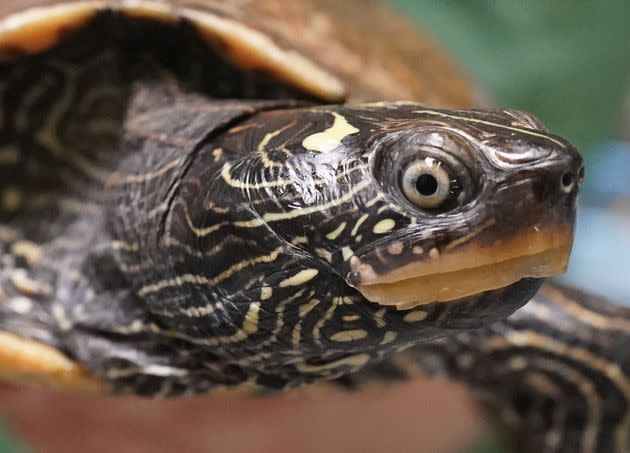CDC Warns: Stop Puckering Up To Your Pet Turtles
Getting cozy with your pet turtle might not be a good idea, according to the Centers for Disease Control and Prevention.
Last week, public health officials advised people not to “kiss or cuddle” their shelled companions after a multistate outbreak of salmonella linked to tiny turtles.
Twenty-six people across 11 states have fallen ill from the outbreak and nine had to be hospitalized. No fatalities have been reported, but more that 30% of the cases hit children under the age of 5, who can be seriously affected by an infection.
While turtles of any size can carry salmonella, the CDC said creatures smaller than four inches long were banned by federal law in 1975 after causing “many illnesses, especially in young children.”

A false map humpback turtle from Hamburg, Germany.
Still, smaller breeds are available “illegally online and at stores, flea markets, and roadside stands,” so the CDC advised people to only buy animals from reputable sources.
The agency noted that even healthy-looking turtles can spread germs, so pet owners should be vigilant about hand-washing and general hygiene.
It also warned against eating near pet turtles, and warned people to keep turtles out of areas where you eat, store or prepare food.
Salmonella symptoms include diarrhea, fever and stomach cramps. While not usually serious, it can cause complications in children, older adults and people who are immunocompromised.
Each year, 26,500 Americans are hospitalized and 420 people die from illnesses related to salmonella infections, according to the CDC.
While turtles have a history of causing health concerns, they’re not the only pets that have been linked to salmonella outbreaks.
Last year the CDC reported 32 illnesses stemming from contact with bearded dragons. Pet hedgehogs were linked to 49 cases from 2019 to 2020.

